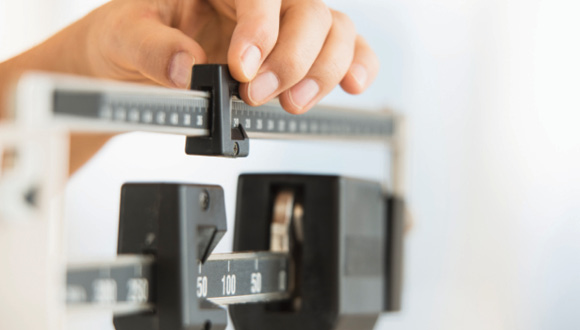A few days ago, a friend on Facebook reposted a cartoon of a woman declaring that, according to the BMI chart, she was too short. For those who aren't familiar, body mass index, or BMI, is a simple measurement tool that calculates your height-to-weight ratio. This ratio can be used to help determine whether or not you're at a healthy weight.
"BMI is one tool that can be used to determine health risks in the general population," explains Lauren Murray, personal trainer at Houston Methodist.
But, some people argue that BMI is too simple a measurement. Is BMI still useful for someone concerned about his or her weight?
Can my BMI help me determine if I need to lose weight?
"While other measures of body fat like waist measurement, skin-fold measurements and bioelectrical impedance are useful, they tend to be more expensive, intrusive and/or difficult to standardize due to human error," Murray explains. "BMI is one way to track weight or identify potential weight problems. But, it should not be used as a diagnostic tool."
Murray explains that many factors must be considered together to get an accurate picture of your health. Factors other than your BMI that play a part in determing your health status include your:
- Age
- Gender
- Past medical history
- Family history
- Diet
- Whether or not you smoke
- Activity level
Why BMI measurements can be misleading
Murray says that, unfortunately, BMI has some limitations. Here's why.
BMI measures excess weight, not excess fat
"BMI is skewed in individuals who are highly muscular, who have a larger bone mass, or in those that have lost muscle," Murray says.
For example, a bodybuilder — whose weight may be higher than normal due to increased muscle mass — may appear obese according to his or her BMI number.
On the flipside, an elderly person's BMI number may appear in the healthy range even though he or she has experienced significant muscle loss.
"In fact, elderly people with a BMI of less than 22 may have increased mortality risk, whereas a younger adult with a BMI of 22 would be considered in the 'healthy range,'" Murray says.
BMI doesn't distinguish between gender or tell you where fat is being stored
BMI also does not distinguish between men and women, even though men tend to have larger frames and more muscular builds. So, while a man and a woman may have the same BMI, the woman would likely have a higher percentage of body fat than the man.
Furthermore, BMI does not take fat distribution into account. For example, waist circumference can be used to determine the amount of visceral fat, which is located around vital internal organs and often associated with increased levels of inflammation and chronic disease risk.
Regardless of your BMI number, remember — it's only one piece of the puzzle. And unless you're planning on growing a few more inches, the best way to reduce your BMI is by eating better and getting some exercise.
Next Steps:
- Calculate your BMI
- Learn more about Houston Methodist's weight loss programs


